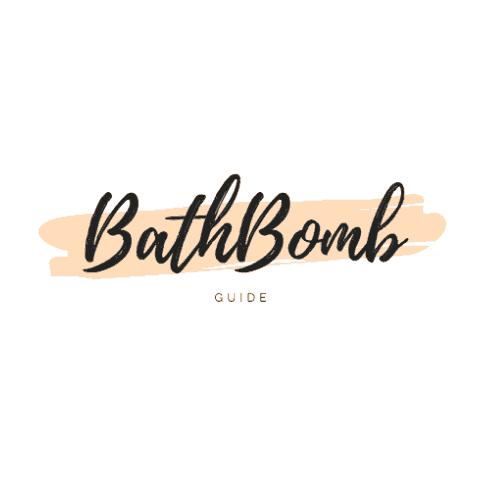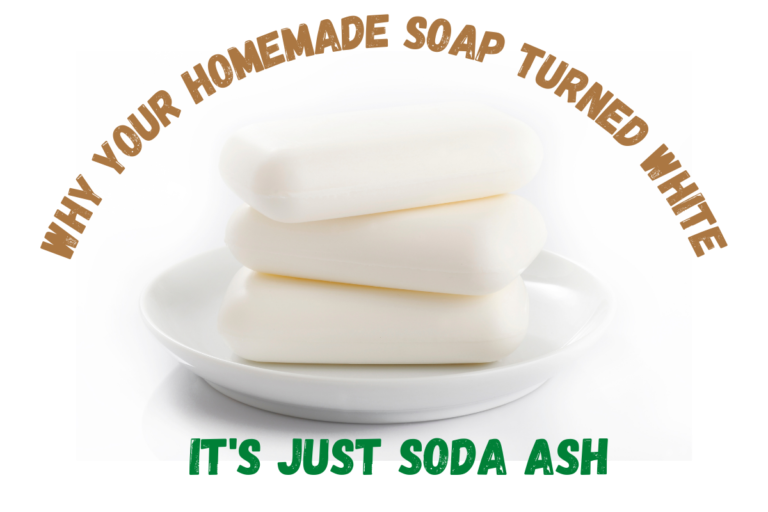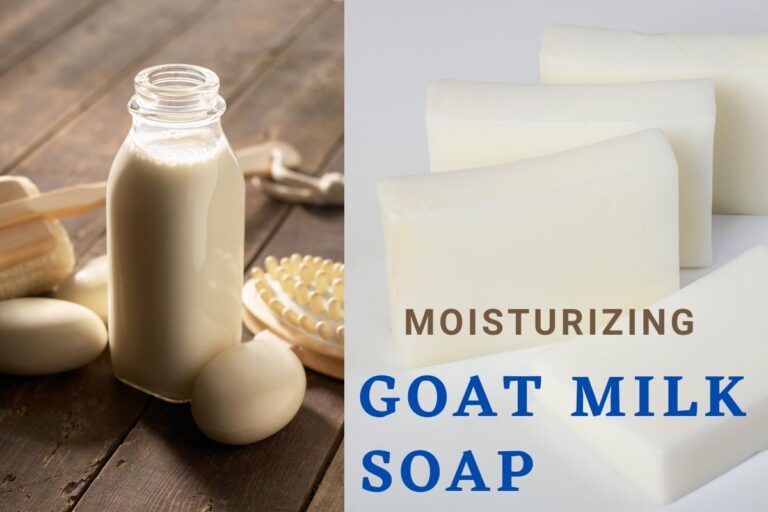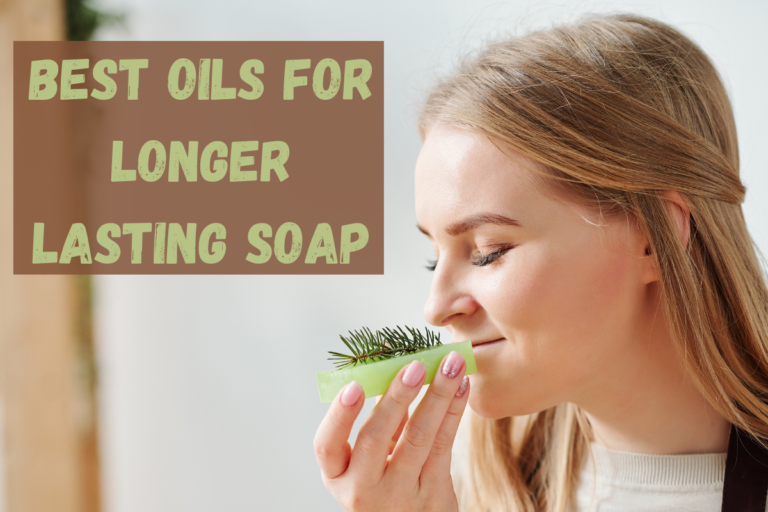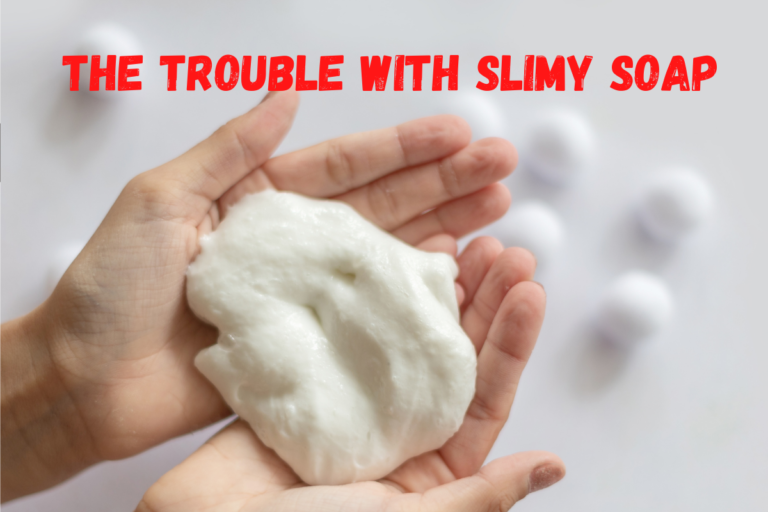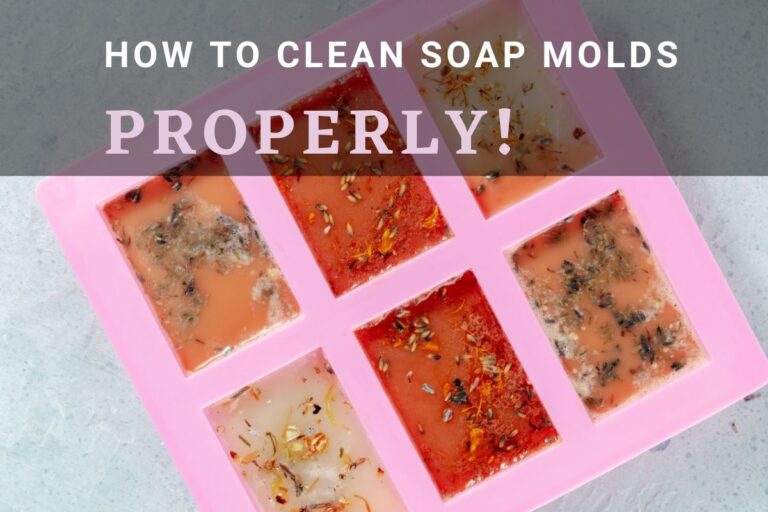This is Why handmade Soap Can be Better for Your Skin
Soap: a foamy, bubbly good time that lathers away dirt and germs while delivering a powerful punch of nourishment to our skin, right? Well, maybe. For a product we slather onto our largest organ every day, it’s wise to take a close look on whether it’s harming or helping our skin.
Homemade soap is better for your skin. It is typically made of natural, skin-nourishing ingredients with names you recognize, like vegetable oil and butter. Commercial soaps usually use synthetic chemicals that your skin doesn’t love.
Which would you rather put on your skin, and therefore, into your body? Your skin needs tender love and care, gentle cleansing, and moisture. We’ll cover the ways handmade and store-bought soap meet these needs below.
The Lowdown on Soap
If I told you you maybe haven’t even used real soap this month, would you be surprised? If you typically use store-bought soap, you may only be using a synthetic lathering agent with some pleasant fragrance and added chemicals — not real soap.
The United States Food and Drug Administration (FDA) controls what products may be defined and advertised as soap. To qualify, the product must meet these criteria:
- The bulk of the nonvolatile matter in the product consists of an alkali salt of fatty acids, and the product’s detergent properties are due to the alkali-fatty acid compounds, and;
- The product is labeled, sold, and represented solely as soap.
What this translates to is this: real soap is what you get when lye and oil come together. If it’s not made as a result of lye and oil, it’s not really soap.
You know how some soaps on the big box store shelves are called a beauty bar or body wash, for example? It’s because they can’t be marketed as soap since they aren’t soap. These products have added ingredients that will give that soapy feeling, like surfactants or lathering agents, which are some of those long names listed in the ingredient list above.
They will still clean your body, wash away dirt, and probably make you smell nice, but they’re not exactly a nourishing treat for your skin.
Handmade soap is actually made from lye and oil, so it will be pure, natural, wholesome soap. And as long as we’re talking about the properties of real soap, it’s worth mentioning that when the lye and oil are combined during the homemade soap-making process, a natural byproduct is released. What’s that, you ask? It’s glycerin, a magical, naturally moisturizing compound that attracts moisture from the air and draws it into the skin.
Glycerin is often found in commercial lotions since it does an excellent job delivering moisture to your skin. As you can imagine, it’s a queen component in handmade soap since it’s so great for your skin. This is a stark contrast to store-bought commercials soaps that typically not only lack glycerin but have added ingredients that contribute to drying the skin. The end result is less-than-pampered dermis.
Pros of Homemade Soap
- Natural ingredients you recognize
- Real soap
- Miracle working natural glycerin
- Nourishes and moisturizes skin
- Control over the ingredients, fragrances, colors, bar sizes, etc.
- Made with love
Cons of Homemade Soap
- Can be more expensive
- Supplies and time required to make it yourself
Pros of Commercial Store Bought Soap
- Very bubbly
- A vast array of fragrance options
- Fancy packaging
- Can be inexpensive
Cons of Commercial Store Bought Soap
- Chemicals and unnatural ingredients
- May dry your skin
- May not cleanse as well as real soap
- May not include complete ingredient lists for fragrances
- Synthetic ingredients may harm your health, contributing to concerns like cancer or hormone disruption
Should You Switch to Homemade Soap?
Before you toss all the store-bought soap in your house and make your own or buy from someone who makes it by hand, you should first consider the pros and cons.
If you’re making a decision solely based on what’s better for your skin, handmade soap is the way to go. But there are other considerations to keep in mind.
Homemade Soap Cost Considerations
If bang for your buck is high on your priority list, you may be better off sticking with store-bought soaps that will still get the cleansing done but offer a lower price tag than a handmade option.
When all’s said and done, if you buy handmade soap from a soapmaker, you’re probably going to spend more per bar than you would at a drugstore. However, you’re supporting a local artisan who poured their heart into their soap, and you’re getting a product packed with fantastic skin-healthy ingredients.
If you decide to make your own soap, the upfront costs are a serious consideration. Buying all the supplies and equipment means you’re making a significant investment at first, but it does mean from there on out, you can generate handmade soap at a cost right about equal to the store price.
Do Your Part for Our World
Buying handmade soap, or the ingredients to make it yourself, means you’re supporting a business where no humans were subject to working in a sweatshop, no natural habitats were destroyed by runoff from a chemical factory, and no lab animals were put in harm’s way for testing.
Natural, homemade soap almost always goes hand in hand with people who value our planet and a kinder way of living.
Support Local
Whether you set out to make your own soap or purchase it from a local artisan, you can support local people and vendors.
If you’re making your own soap, you’re in complete control of what ingredients you select and where you buy them from. Consider choosing a supplier whose business and values align with yours. Look for one who offers top-notch natural products at a fair price. When you do business locally, someone does a happy dance every time you make a purchase, so consider it a gift to them and your local economy.
If you are going to buy handmade soap from someone who makes it, our same advice applies. Find an artisan who you feel great about supporting and whose product is full of fantastic, skin-nourishing ingredients.
Frequently Asked Questions
Q: Does homemade soap clean as well as store-bought soap?
You bet it does! Handmade soap is the real deal, a combination of lye and oil. Both handmade soap and a store-bought commercially produced skin cleanser are categorized as surfactants, so both will do the job of lifting and washing away dirt, grime, and germs. It’s just that one is natural, and one is chemically produced. Which would you prefer?
Q: How can you make handmade bars of soap last longer?
To stretch your handmade soap bar as long as possible and get the most out of it, consider letting it cure as soon as you buy or make it. Let it sit out in the open for six to eight weeks, so it hardens as much as possible. This prevents it from mushing up as much and washing down your drain.
When not in use, keep it away from water and moisture as much as possible to preserve it. You may also consider cutting your bar into smaller pieces, so there’s less surface area to potentially get wet (and deteriorate your bar).
Q: Does handmade soap expire?
This depends on the ingredients. Generally, if the soap looks, smells, and feels good, it’s good. If it’s smelling funky or feeling sticky or oil, it’s probably started to oxidize, and it’s best not to use it.
Store your handmade soap in a cool, dark place, and remember that as it hardens and mellows out, it’s actually curing and gearing up to last longer. The scent may fade a bit, but don’t worry – rubbing the wet bar while in use will let the fragrance bloom again.
Final Thoughts
If you want to take fantastic care of your skin as you clean it, handmade soap is best for your skin. From the gentle, pure cleansing properties of a natural soap to the added moisture that glycerin brings, your skin will thank you for using homemade soap.
